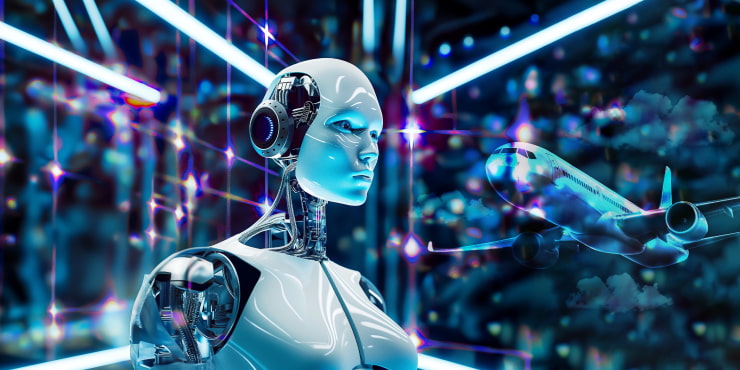In recent years, the integration of AI for space mission planning has revolutionized how we approach the challenges of exploring the vast cosmos. As humanity sets its sights on distant planets and celestial bodies, the need for efficient and precise mission planning becomes paramount. Leveraging artificial intelligence in this domain is not just an option but a necessity.

The Importance of AI in Space Exploration
Space exploration is fraught with complexities and uncertainties. Traditional planning methods, while effective, often fall short in managing the massive amounts of data and dynamic conditions of space missions. This is where AI steps in, offering powerful tools to analyze data, predict outcomes, and optimize resources.
Enhanced Data Analysis
AI algorithms can process vast datasets collected from various sensors and instruments aboard spacecraft. This capability allows scientists to gain insights that were previously unattainable, enhancing decision-making processes. For instance, AI can help in identifying the best landing sites on celestial bodies by analyzing terrain data and assessing potential risks.
Predictive Capabilities
One of the key advantages of using AI is its ability to predict potential challenges and devise contingency plans. By simulating different scenarios, AI can help mission planners anticipate obstacles and formulate strategies to overcome them. This predictive power is crucial for the success of long-duration missions where real-time decision-making is limited.
Optimizing Resource Allocation
Space missions are resource-intensive endeavors. From fuel consumption to communication bandwidth, every aspect needs to be meticulously managed. AI systems can optimize resource allocation by analyzing mission parameters and adjusting strategies accordingly. This ensures that missions are not only successful but also cost-effective.
Fuel Efficiency
AI-driven systems can optimize fuel consumption by calculating the most efficient trajectories and maneuvers. By minimizing fuel usage, missions can extend their operational life and achieve more with the available resources.
Communication Management
Effective communication is critical for space missions, especially those involving remote and autonomous operations. AI can manage communication protocols, ensuring that data is transmitted efficiently and without delays, even in challenging conditions.
AI’s Role in Autonomous Operations
As missions venture further into space, the need for autonomous operations becomes increasingly important. AI enables spacecraft to perform tasks independently, reducing the need for constant human intervention. This autonomy is crucial for missions to distant planets where communication delays can hinder real-time control.
Navigation and Guidance
AI plays a vital role in navigation and guidance systems, allowing spacecraft to chart courses and avoid hazards. By processing data from onboard sensors, AI systems can make real-time adjustments to maintain optimal trajectories.
Surface Exploration
On planetary surfaces, AI enables rovers and landers to autonomously explore and collect data. This capability enhances the scope of missions, allowing for the detailed study of environments that are otherwise inaccessible.
Challenges and Future Prospects
While the benefits of AI for space mission planning are undeniable, challenges remain. Ensuring the reliability and robustness of AI systems in the harsh space environment is a significant concern. Additionally, ethical considerations regarding autonomous decision-making must be addressed.
Looking ahead, the future of AI in space exploration is promising. As technology advances, AI will become even more integral to mission planning and execution. The potential for AI to drive innovation in space exploration is immense, opening new frontiers for discovery and understanding.
Conclusion
The integration of AI for space mission planning marks a pivotal shift in how we approach the challenges of exploring the universe. By enhancing data analysis, optimizing resources, and enabling autonomous operations, AI is transforming the way we navigate the final frontier. As we continue to push the boundaries of space exploration, the role of AI will undoubtedly expand, offering new possibilities and insights into the cosmos.

Frequently Asked Questions
How does AI improve space mission planning?
AI enhances space mission planning by analyzing vast datasets, predicting challenges, and optimizing resource allocation, ensuring efficient and successful missions.
What are the challenges of using AI in space?
Challenges include ensuring the reliability of AI systems in harsh environments and addressing ethical concerns related to autonomous decision-making.
Can AI operate spacecraft autonomously?
Yes, AI can enable spacecraft to perform tasks independently by managing navigation, guidance, and surface exploration without constant human intervention.
For more on the influence of AI in the aerospace industry, consider visiting this detailed resource.
To explore more about AI’s role in modern warfare, you can check out AI’s role in warfare or understand how AI is utilized in the Ukraine conflict for a broader perspective.

